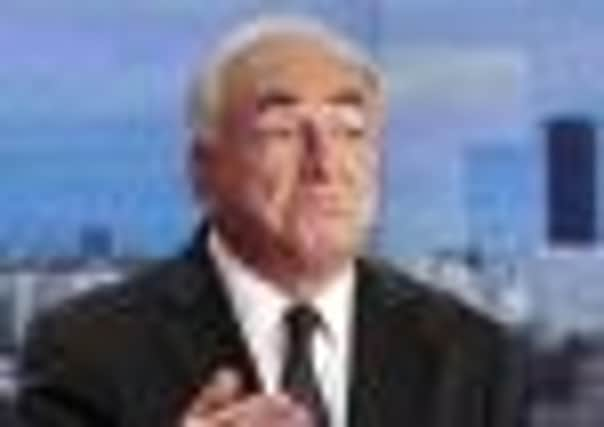Strauss-Kahn could face new trial for rape of hotel maid


In a ruling handed down in Bronx Supreme Court, Justice Douglas McKeon threw out a motion to have the civil case dismissed, raising the prospect of a New York trial for the embattled French politician.
Mr Strauss-Kahn had attempted to claim protection under an international convention not ratified by the US, with terms not explicitly backed by the IMF itself.
Advertisement
Hide AdAdvertisement
Hide AdHis lawyers also put in the motion to dismiss despite their client not seeking immunity in earlier criminal proceedings.
It was a ploy described by the judge in yesterday’s ruling as akin to a “Hail Mary pass” – a reference to the long throw favoured by American football teams on the brink of a loss.
And in a line that could be taken as a warning to the one-time French presidential hopeful, the ruling was prefaced by a Japanese proverb stating: “The reputation of a thousand years may be determined by the conduct of one hour.”
It was a line the IMF had used in an annual report on ethics.
Mr Strauss-Kahn, 63, is accused of attempting to rape hotel employee Nafissatou Diallo, 33, at Manhattan’s upmarket Sofitel Hotel in May last year.
She claims that the married Frenchman ran at her naked, molested her and forced her to perform oral sex on him after she entered his suite to clean it.
The claims led to a criminal investigation against Mr Strauss-Kahn and his house arrest in New York. But charges were dropped after prosecutors said there were “substantial credibility issues” with the alleged victim.
Discrepancies emerged between an initial account she gave to police and what she later told prosecutors.
Advertisement
Hide AdAdvertisement
Hide AdDespite the collapse of the criminal case, lawyers for Ms Diallo have insisted that she is entitled to “her day in court” and have vowed to hold Mr Strauss-Kahn to account.
At an earlier hearing, lawyers for Mr Strauss-Kahn argued that he was immune from being sued under international law.
But Justice McKeon raised doubt over the tactic even before he retired to consider his ruling.
He told Mr Strauss-Kahn’s attorney that the framework they were arguing under – the 1947 Convention on Privileges and Immunities of Specialised Agencies – had never been ratified by the US. And an annex to the document submitted by the IMF appeared to show the international body had not signed up to the “absolute immunity” provided.
Lawyers for Ms Diallo also argued that, as an ex-employee of the international body, he was no longer eligible in any event – a view backed, they said, by the fact that he did not invoke immunity after his initial arrest.
But Mr Strauss-Kahn’s lawyers said at the time it was “not in his interests to do so”, adding that he wanted to clear his name.
They also claimed he was covered by a provision that allowed reasonable time for departing diplomats to leave a country before their immunity is stripped.
Justice McKeon’s written ruling said: “Strauss-Kahn cannot eschew immunity in an effort to clear his name only to embrace it now to deny Ms Diallo the opportunity to clear hers.”
Mr Strauss-Kahn’s lawyers are to fight the claims. He has said the encounter was consensual.